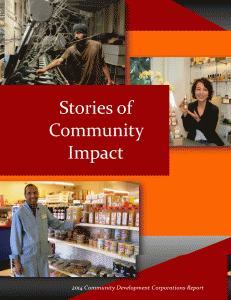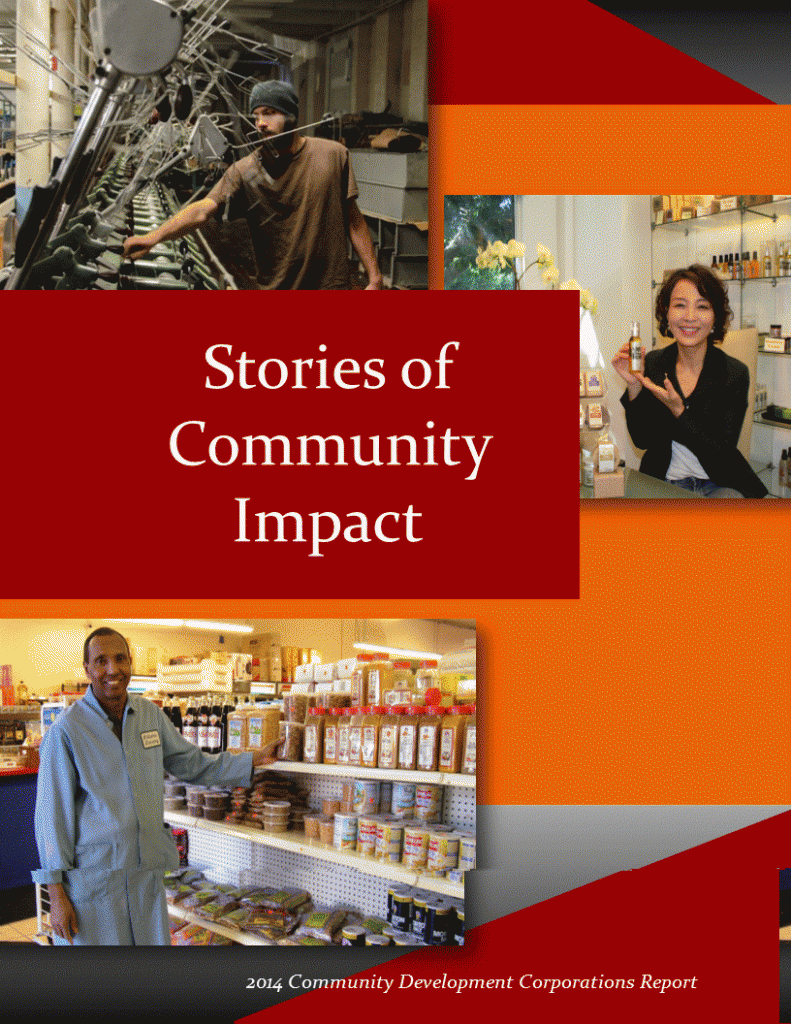Contact: Ayrianne Parks
Telephone: 202.579.7445
Email: Ayrianne@Rapoza.org
FOR IMMEDIATE RELEASE
Report Shows Community Development Groups Create Jobs and Grow Local Economies
A report released by Rapoza Associates shows 26 community development projects resulted in nearly 7,000 jobs in communities still plagued by high unemployment and poverty rates
December 9, 2014—Washington, D.C.—Amidst federal funding negotiations happening on Capitol Hill, a new report was released today on the impact Community Development Corporations (CDCs) have around the country, as a result of several of these federal programs. The report highlights 26 community-driven projects CDCs have completed over the past few years in urban and rural communities with federal community development funding. Rapoza Associates represents the CDCs and produced the report, which includes case studies and outcome data.
“Over the last 30 years, federal investments for community development programs have declined by over 75 percent [measured as a share of GDP],” said Bob Rapoza, president and principal of Rapoza Associates. “In response to this, CDCs have skillfully combined limited federal funding with private sector capital to get a payoff for their communities, in terms of improved housing, better community facilities, financing for small business and creation of jobs.”
 The case studies highlight projects employing federal program funding, including Office of Community Services’ Community Economic Development grants, Community Development Block Grants, rural development funding from the Department of Agriculture, the Low-Income Housing Tax Credit, the New Markets Tax Credit and other programs targeted toward revitalizing economically distressed communities and neighborhoods.
The case studies highlight projects employing federal program funding, including Office of Community Services’ Community Economic Development grants, Community Development Block Grants, rural development funding from the Department of Agriculture, the Low-Income Housing Tax Credit, the New Markets Tax Credit and other programs targeted toward revitalizing economically distressed communities and neighborhoods.
The 26 projects showcased by 17 CDCs achieved the following results:
- Created/retained nearly 7,000 jobs in areas struggling with unemployment, the majority of which are in the double digits;
- Resulted in over 700 units of affordable housing, several community facilities, healthcare facilities, and weatherization projects; and
- Provided business lending and investments, totaling more than $200 million in areas with exceptionally high poverty rates.
CDCs work in many of the nation’s poorest areas nationwide, attracting private capital to underserved, investment-starved neighborhoods. With moderate public support from federal, state and local government agencies, CDCs increase capacity by effectively leveraging private capital.
CDCs apply rigorous standards to the community investments they make. Although they take risks more conventional funders might avoid, they look for projects with a high potential for long-term self-sustainability, and then supply the guidance and technical assistance that can markedly improve the prospects for success. Because CDCs are community-controlled, they are highly accountable, not just to their funding sources, but to the people they serve.
“The foundation for CDCs is the notion that community revitalization should be initiated locally—and that’s just what they’ve done since the 1960s, quietly working their magic,” says Rapoza.
About Rapoza Associates
RAPOZA ASSOCIATES is a lobbying and government relations firm specializing in federal community development policy. Our clients work to build stronger communities across the nation – and we support their work by providing them a range of key services, including representation before Congress and federal agencies and consultation on federal policy and programs. We have more than 30 years of experience in legislative strategy, public policy analysis and action-oriented research.

